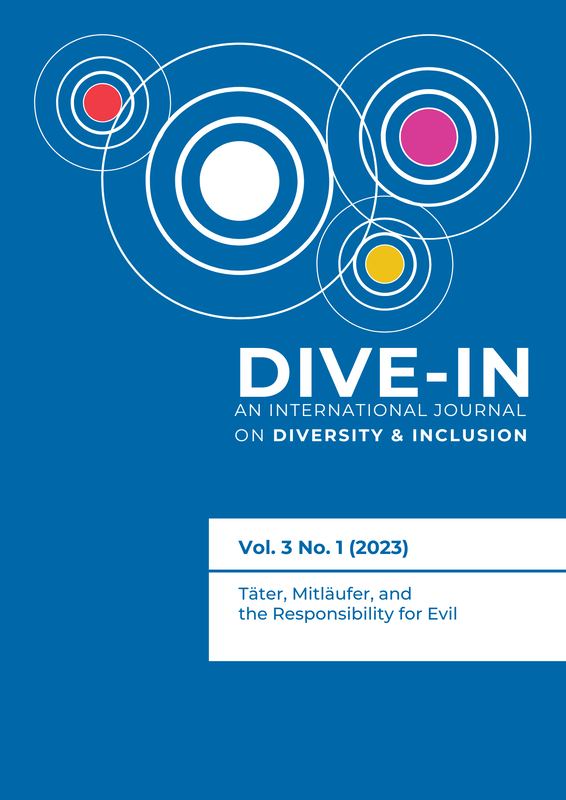Beitrag Grundlosigkeit Genozid. Genozide und die Frage nach dem „Warum?“ Komparatistiche Überlegungen zum Konzept der „extremen Grundlosigkeit“ in autobiographischen Zeugnissen von Überlebenden der Shoah und des Tutsizids
DOI:
https://doi.org/10.6092/issn.2785-3233/17014Keywords:
Shoah, Tutsicide, Genocide comparison, autobiographical records of survivors, historical causalityAbstract
Based on autobiographical testimonies written by survivors of the Shoah and the Tutsicide in Rwanda, the article deals with the question of “why?” which accompanied the execution of the respective genocide as much as its “after.” When he dared to ask the “why” of the violence in Auschwitz, Primo Levi received the decisive answer: “There is no why here.” How the victims in Europe as well as in Rwanda, dealt with the arbitrariness and absoluteness of genocidal power instances is traced in three chronological steps: The first phase concerned the question of identifying the group to be killed and the redundancy of definitional access to the apparently “other” body. The second phase showed the disappearance of the question of the reasons for the massacres. The third phase corresponds to the period after the liberation of the victims. Here, the absurdity of the crimes became so glaring that many victims momentarily began to doubt the reality of their suffering. I hypothesise that the study of the extreme groundlessness of genocides does not contradict but complements the historical study of the origins and functioning of mass violence.
References
Arendt, Hannah. 2011 [1963]. Eichmann in Jerusalem. Ein Bericht über die Banalität des Bösen. München: Piper.
Améry, Jean. 2022. „Die Tortur“, in Jenseits von Schuld und Sühne. Bewältigungsversuche eines Überwältigten, 37–58. Stuttgart: Klett-Cotta.
Chrétien, Jean-Pierre & Marcel Kabanda. 2015. Rwanda. Racisme et génocide. L’idéologie hamitique. Paris: Belin.
Diner, Dan. 1988. Zivilisationsbruch. Denken nach Auschwitz. Frankfurt/M: Fischer-Verlag.
Dumas, Hélène. 2014. Le génocide au village. Paris: Seuil.
Dumas, Hélène. 2020. Sans ciel ni terre. Paroles orphelines du génocide des Tutsi (1994-2006). Paris: La découverte à la source.
Hatzfeld, Jean. 2014. Englebert des collines. Paris: Folio.
Hilberg, Raul. 1996. Die Vernichtung der europäischen Juden, 3 Bde. Frankfurt/M: Fischer-Verlag.
Kertész, Imre. 1998. Roman eines Schicksallosen. Frankfurt/M: Suhrkamp-Verlag.
Klüger, Ruth. 1994. weiter leben. Eine Jugend. Göttingen: dtv.
Levi, Primo. 1989. Se questo è un uomo. Torino: Einaudi.
Levi, Primo. 2005. Se questo è un uomo. Torino: Einaudi (mit Anhang).
Mujawayo, Esther. 2011. SurVivantes. Paris: MetisPresses.
Mukamugema Eugénie. 2015. Une Vie au Rwanda parmi tant d’autres. Miélan: Izuba Editions.
Mukasonga, Scholastique. 2006. Inyenzi ou les Cafards. Paris: Gallimard.
Peiter, Anne D. 2007. Komik und Gewalt. Zur literarischen Verarbeitung der beiden Weltkriege und der Shoah. Köln: Böhlauverlag.
Peiter, Anne D. „Genozid und antichronologisches Erzählen. Zu autobiographischen Texten überlebender Tutsi und Juden.“ In Gegen den Zeitstrahl, hg. von Julia Seeberger et al. [in Vorbereitung].
Peiter, Anne D. „Invektiven im Genozid. Zu Zeugnissen von überlebenden Tutsi.“ In Simon Meier-Vieracker et al. (Hg.), Invektiven [in Vorbereitung].
Peiter, Anne D. „Überzeugen macht unfruchtbar. Zu verschwörungsreligiösen Rechtfertigungsstrategien von Gewalt“, erscheint in einem Sammelband zu Rechtfertigungsstrategien, hg. von Svana Stemmler et al. [in Vorbereitung].
Peiter, Anne D. 2019. Träume der Gewalt. Studien der Unverhältnismässigkeit zu Texten, Filmen und Fotografien. Nationalsozialismus – Kolonialismus – Kalter Krieg. Bielefeld: transcritp-Verlag.
Riccardi, Roberto. 2009. Sono stato un numero. Alberto Sed racconta. Firenze: Giuntina.
Rousset, David. 1946. L’univers concentrationnaire. Paris: Les éditions de minuit.
Rurangwa, Révérien. 2006. Génocide. Paris: J’ai lu.
Sattar, Majid. 2014. „Biermann beschimpft ‚Linke‘: Ohrfeigen vom Drachentöter“, 07.11.2014, https://www.faz.net/aktuell/politik/25-jahre-deutsche-einheit/wie-die-linke-auf-wolf-biermanns-beschimpfungen-reagiert-13254152.html; abgerufen am 2.2.2023.
Wiesel, Elie. 2007. La nuit. Paris: Les éditions de minuit.
Downloads
Published
How to Cite
Issue
Section
License
Copyright (c) 2023 Anne D. Peiter

This work is licensed under a Creative Commons Attribution 4.0 International License.





